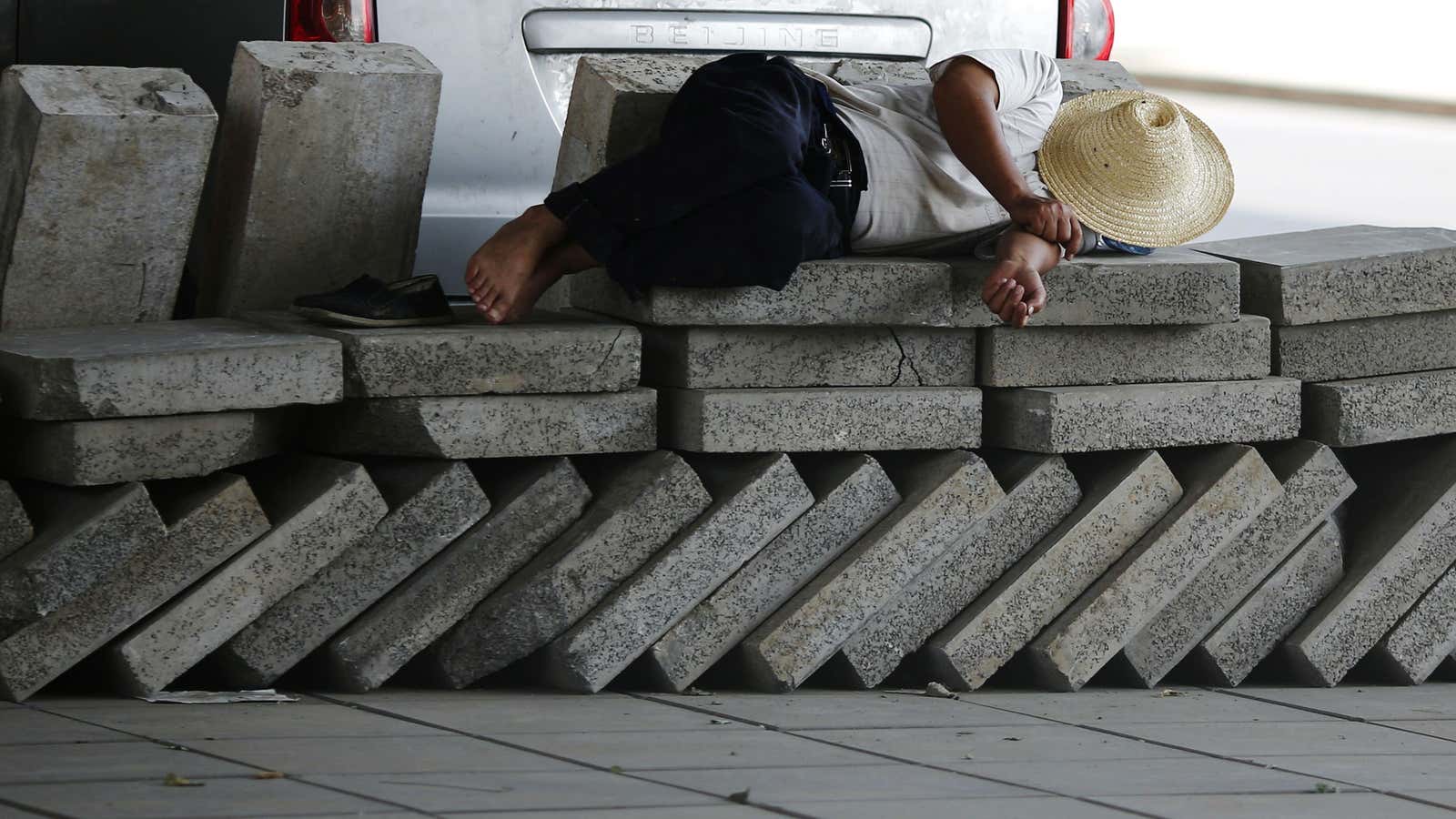While many Beijing residents are staying indoors to escape the cloud of heavy pollution hanging over the city, one man with a vacuum cleaner has been exposing himself to the toxic air for four hours a day, 100 days in a row.
No, he isn’t hoping the Air Quality Index will improve thanks to his industrial-strength vacuum. Instead, he’s making a public point about the capital’s notoriously heavy smog, by turning the dust he collects into a brick.
“Nut Brother,” a 34-year-old performance artist from Shenzhen, first announced his plan to vacuum the dust from Beijing’s air in late July. Every day since then, the pony-tailed guy in a work jacket—sometimes wearing a respirator mask—has walked Beijing’s streets with his vacuum, with the suction nozzle held high in the air collecting dust.
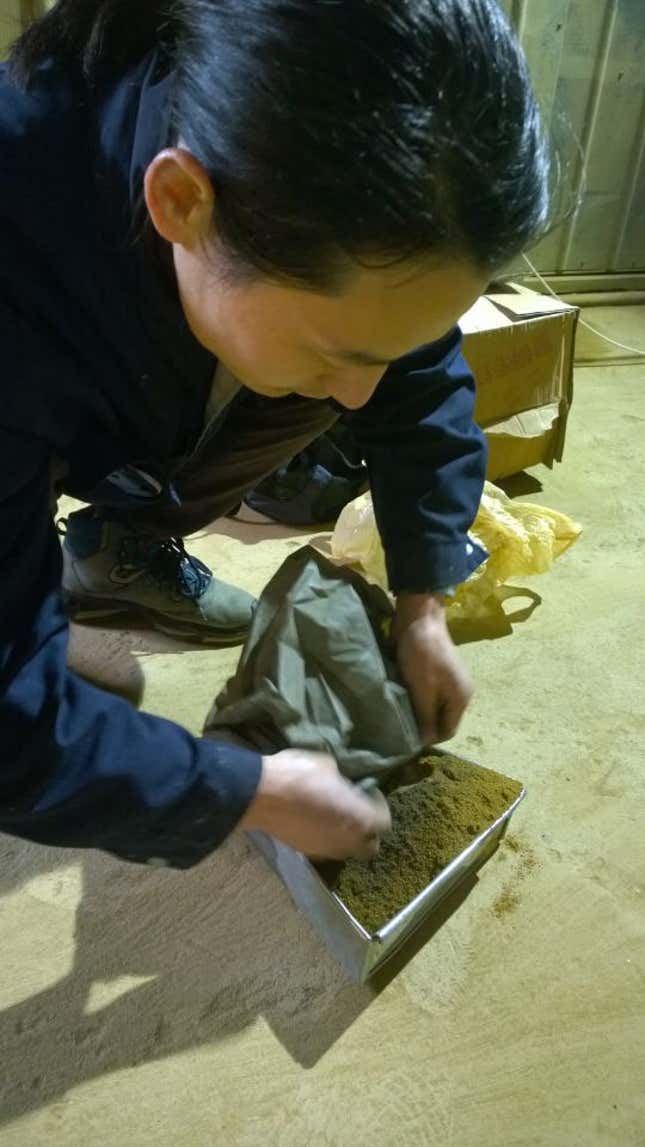
On Nov. 30, the 100th day of his project, he mixed the dust he collected with clay and took it to a brick factory to make a semi-finished brick. The final brick will be finished in a few days, after it is dried and fired.
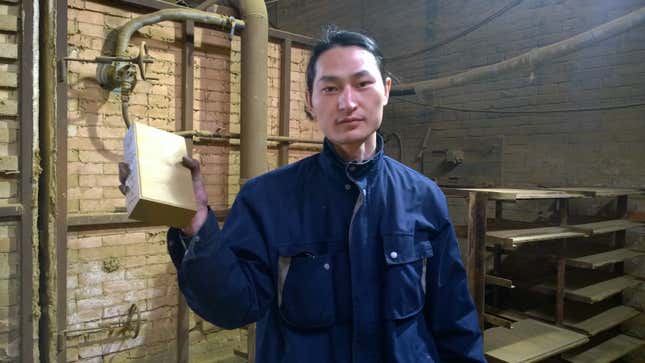
“Air in Beijing is bad all over,” Nut Brother told Quartz. “There’s no special supply of air.” He came up with his plan in 2013, after living in the city for years, as Beijing’s “airpocalypse” sparked outrage in the China. Through his performance art, he wants people to think more about environmental protection and better understand the “relationship between human and nature,” he said.
During his walks, he was often taken for a “cleaner,” or an “air monitoring person.” Nut Brother vacuumed air from Beijing’s hutongs (old lanes), Tiananmen Square, the Bird’s Nest national stadium, and the headquarters of the Ministry of Environmental Protection. Every day on his Sina Weibo account (link in Chinese, registration required) he noted the date, the weather, and his vacuuming area, and added a photo he asked passersby to take.
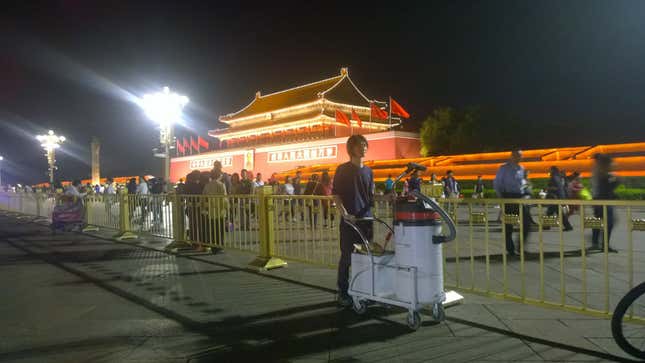
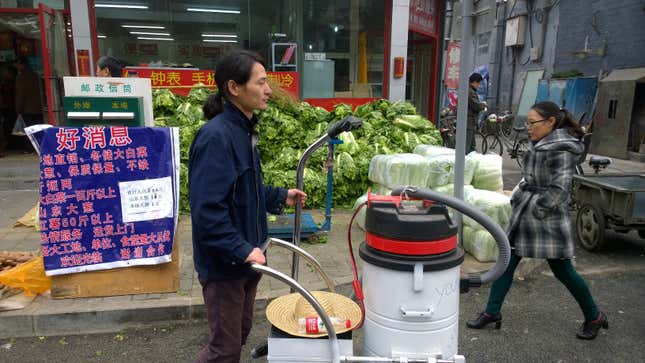
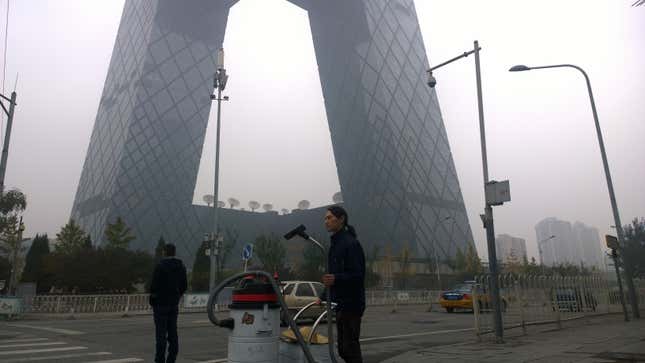
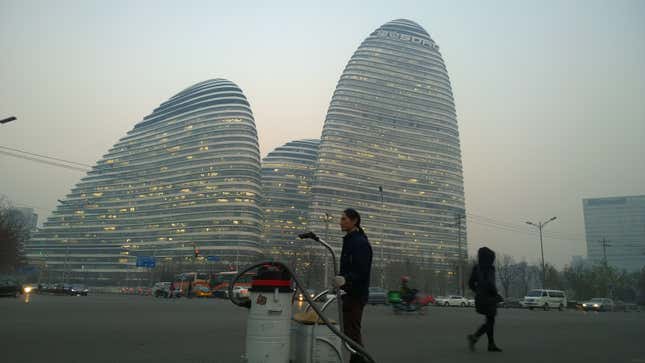
While Nut Brother’s work is getting a lot of attention in China, many wonder if the brick is really made of smog. ”What can be collected to make a brick is by no means PM 2.5 [fine particulate matter that hangs in the air], but PM 250,” one Weibo user wrote (link in Chinese, registration required) under a news post about the project. “Performance art shouldn’t be a gimmick.”
Nut Brother told Quartz what he got at the end of the project was a mixture of “dust and smog” that weighed about 100 grams. Adding that to clay to make a brick that weighs “several kilograms” makes his brick not that different from ordinary ones, he admitted, but he said it is just meant to be a symbol. “I’m not doing any scientific research,” he said.
The next step, Nut Brother said, is to give the brick to a construction site, and make it part of a new building in Beijing. He would like to let the brick disappear into the concrete jungle, he said, “just like putting a drop of water in the ocean.”
